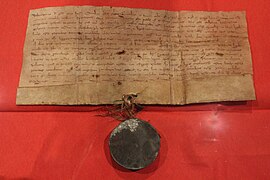
A borough is an administrative division in various English-speaking countries. In principle, the term borough designates a self-governing walled town, although in practice, official use of the term varies widely.
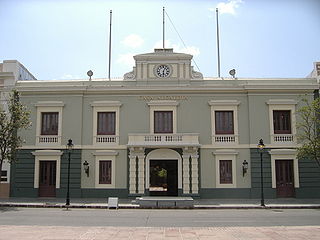
A municipality is usually a single administrative division having corporate status and powers of self-government or jurisdiction as granted by national and regional laws to which it is subordinate.

A town is a type of a human settlement. Towns are generally larger than villages and smaller than cities, though the criteria to distinguish between them vary considerably in different parts of the world.
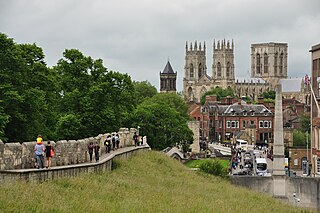
City status in the United Kingdom is granted by the monarch of the United Kingdom to specific centres of population, which might or might not meet the generally accepted definition of cities. As of 22 November 2022, there are 76 cities in the United Kingdom—55 in England, seven in Wales, eight in Scotland, and six in Northern Ireland. Although it carries no special rights, the status of city can be a marker of prestige and confer local pride.

A royal charter is a formal grant issued by a monarch under royal prerogative as letters patent. Historically, they have been used to promulgate public laws, the most famous example being the English Magna Carta of 1215, but since the 14th century have only been used in place of private acts to grant a right or power to an individual or a body corporate. They were, and are still, used to establish significant organisations such as boroughs, universities and learned societies.

A market town is a settlement most common in Europe that obtained by custom or royal charter, in the Middle Ages, a market right, which allowed it to host a regular market; this distinguished it from a village or city. In Britain, small rural towns with a hinterland of villages that are still commonly called market towns, as sometimes reflected in their names.

Magdeburg rights were a set of town privileges first developed by Otto I, Holy Roman Emperor (936–973) and based on the Flemish Law, which regulated the degree of internal autonomy within cities and villages granted by the local ruler. Named after the German city of Magdeburg, these town charters were perhaps the most important set of medieval laws in Central Europe. They became the basis for the German town laws developed during many centuries in the Holy Roman Empire. The Magdeburg rights were adopted and adapted by numerous monarchs, including the rulers of Bohemia, Hungary, Poland and Lithuania, a milestone in the urbanization of the region which prompted the development of thousands of villages and cities.

A charter is the grant of authority or rights, stating that the granter formally recognizes the prerogative of the recipient to exercise the rights specified. It is implicit that the granter retains superiority, and that the recipient admits a limited status within the relationship, and it is within that sense that charters were historically granted, and it is that sense which is retained in modern usage of the term.

The Freedom of the City is an honour bestowed by a municipality upon a valued member of the community, or upon a visiting celebrity or dignitary. Arising from the medieval practice of granting respected citizens freedom from serfdom, the tradition still lives on in countries such as the United States, United Kingdom, Ireland, Australia, Canada, South Africa and New Zealand—although today the title of "freeman" confers no special privileges. The Freedom of the City can also be granted by municipal authorities to military units which have earned the city's trust; in this context, it is sometimes called the Freedom of Entry. This allows them the freedom to parade through the city, and is an affirmation of the bond between the regiment and the citizenry.

A royal burgh was a type of Scottish burgh which had been founded by, or subsequently granted, a royal charter. Although abolished by law in 1975, the term is still used by many former royal burghs.

A burgh is an autonomous municipal corporation in Scotland, usually a city, town, or toun in Scots. This type of administrative division existed from the 12th century, when King David I created the first royal burghs. Burgh status was broadly analogous to borough status, found in the rest of the United Kingdom. Following local government reorganisation in 1975, the title of "royal burgh" remains in use in many towns, but now has little more than ceremonial value.
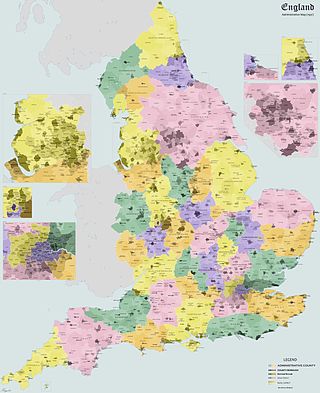
A municipal borough was a type of local government district which existed in England and Wales between 1836 and 1974, in Northern Ireland from 1840 to 1973 and in the Republic of Ireland from 1840 to 2002. Broadly similar structures existed in Scotland from 1833 to 1975 with the reform of royal burghs and creation of police burghs.
City rights are a feature of the medieval history of the Low Countries. A liege lord, usually a count, duke or similar member of the high nobility, granted to a town or village he owned certain town privileges that places without city rights did not have.
Stad is a Swedish term that historically was used for urban centers of various sizes. Since 1971, stad has no administrative or legal significance in Sweden.
Burgess was a British title used in the medieval and early modern period to designate someone of the burgher class. It originally meant a freeman of a borough or burgh but later came to mean an official of a municipality or a representative in the House of Commons.
A municipal corporation is the legal term for a local governing body, including cities, counties, towns, townships, charter townships, villages, and boroughs. The term can also be used to describe municipally owned corporations.

The German town law or German municipal concerns was a set of early town privileges based on the Magdeburg rights developed by Otto I. The Magdeburg law became the inspiration for regional town charters not only in Germany, but also in Central and Eastern Europe who modified it during the Middle Ages. The German town law was used in the founding of many German cities, towns, and villages beginning in the 13th century.
The history of local government in England is one of gradual change and evolution since the Middle Ages. England has never possessed a formal written constitution, with the result that modern administration is based on precedent, and is derived from administrative powers granted to older systems, such as that of the shires.
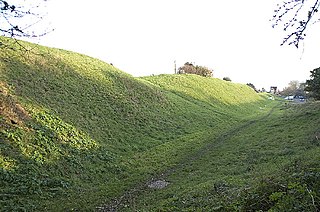
An ancient borough was a historic unit of lower-tier local government in England and Wales. The ancient boroughs covered only important towns and were established by charters granted at different times by the monarchy. Their history is largely concerned with the origin of such towns and how they gained the right of self-government. Ancient boroughs were reformed by the Municipal Corporations Act 1835, which introduced directly elected corporations and allowed the incorporation of new industrial towns. Municipal boroughs ceased to be used for the purposes of local government in 1974, with borough status retained as an honorific title granted to some post-1974 local government districts by the Crown.
Guildable Manor is a Court Leet in Southwark under the authority of the City of London, along with the King's Manor, Southwark, and the Great Liberty. The name of 'Guildable' first recorded in 1377 refers to the collection of taxes there and was adopted to distinguish this from the other manors of the Southwark area. Its legal title, according to a Royal charter granted to the City by King Edward III in 1327, is 'the ville of Southwark' i.e. 'ville = 'town'; in the more substantive charter of Edward VI it is designated 'The Town and Borough of Southwark' as is stated on its Seal. It is a preserved limited jurisdiction under the Administration of Justice Act 1977. Although neither a guild nor a livery company, the Guildable Manor does have a permanent organization, consisting of Officers and Jurors.
